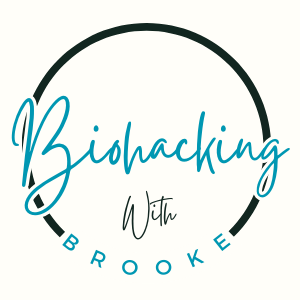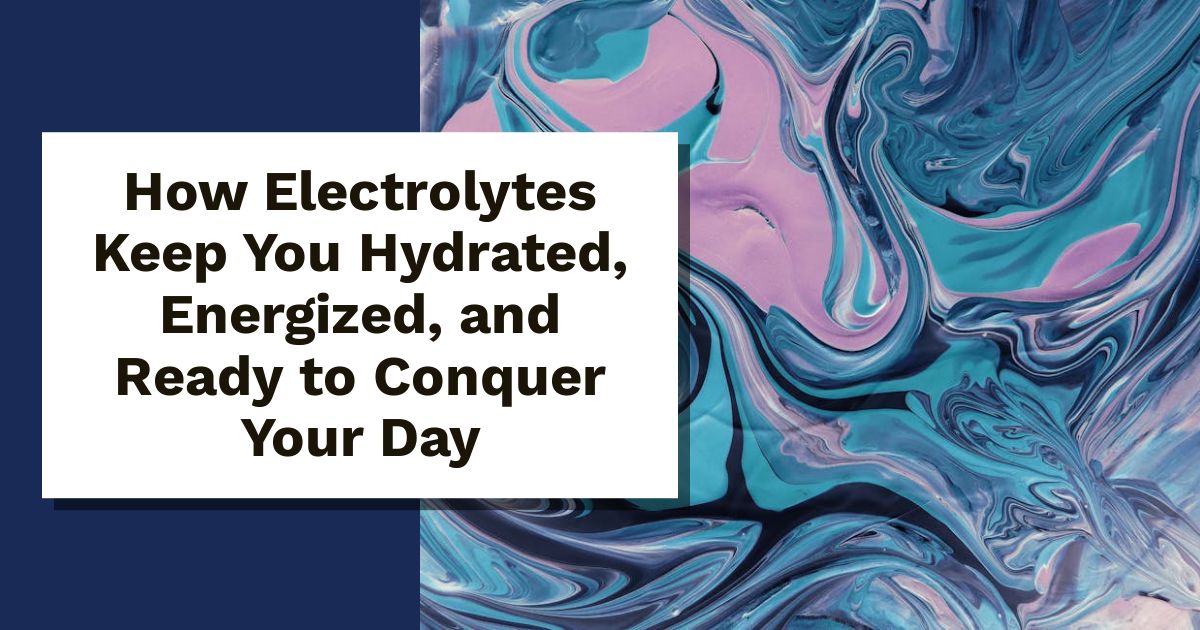Ever wonder why your body craves salty snacks after a workout or why staying hydrated feels like rocket science? The answer lies in electrolytes. These tiny, charged minerals—like sodium, potassium, and magnesium—are your body’s unsung heroes. They help balance fluids, power your muscles, and keep your nerves firing on all cylinders. Without them, even basic physical tasks can feel like climbing a mountain. Ready to find out how electrolytes fuel your body and keep you performing at your best? Let’s dive in.
What Are Electrolytes?
Think of electrolytes as your body’s secret power source. These charged minerals are like the battery that fuels your cells, enabling countless essential processes in your body. Without them, your muscles wouldn’t flex, your heart wouldn’t beat as it should, and your hydration levels would be out of sync. But wait—what exactly are these minerals, and why do they matter so much?
Electrolytes are minerals that carry an electric charge when dissolved in water. They’re responsible for conducting electricity that helps cells communicate and function effectively. This includes regulating fluid balance, facilitating muscle contractions, and even maintaining your brain’s sharpness. Curious to know how each type contributes to your vitality? Let’s unpack them.
Types of Electrolytes
Here’s a quick breakdown of the major electrolytes and why you should care about them:
Sodium
Sodium is a hydration MVP. It controls fluid balance in your body and helps nerves and muscles do their job. Ever felt dizzy or weak after sweating buckets? That’s your body begging for more sodium. Just don’t go overboard—too much can strain your heart.
Potassium
Potassium is sodium’s best friend (and sometimes rival). It works with sodium to control fluid levels and ensure your muscles and nerves function properly. Fun fact: low potassium levels can lead to muscle cramps that feel like they’re punishing you for skipping your bananas.
Calcium
When you think calcium, you probably think bones. But this electrolyte is also crucial for muscle movements, blood clotting, and nerve messaging. Lose too much calcium, and your body might struggle to perform basic tasks.
Magnesium
Magnesium is the unsung hero of electrolytes. It helps regulate muscle contractions, keeps your heart rhythm steady, and supports energy production. Think of it as the handyman ensuring everything runs smoothly.
Chloride
Chloride teams up with sodium to regulate fluid balance and maintain proper pressure inside and outside your cells. Without it, your hydration game would be seriously off track.
Bicarbonate
Often overlooked, bicarbonate helps maintain the pH balance of your blood. It ensures your body doesn’t veer into overly acidic territory—a crucial factor in optimal physical performance.
Want to dive deeper into the science of electrolytes? Check out resources like Cleveland Clinic’s explanation of electrolytes or Cedars-Sinai’s detailed article for more insights.
Electrolytes truly power your body’s inner workings. The next time you sweat through a workout or feel run down, take a moment to appreciate these tiny, mighty minerals. Onto the next section, where we’ll explore exactly how electrolytes interact with physical performance!
How Electrolytes Aid Performance
Electrolytes are the small but mighty players that keep your body running like a high-performance engine. These charged minerals—including sodium, potassium, and magnesium—coordinate some of the most crucial functions of your body. From keeping you hydrated to enabling muscle movement and nerve signaling, electrolytes are indispensable for physical performance. Let’s break it down, one function at a time.
Hydration and Electrolytes
Think of electrolytes as the GPS system for water in your body. They ensure that fluids reach the right places, like cells and blood vessels, to keep everything balanced. Sodium, for example, works like a fluid traffic cop, directing water where it’s needed most. When you sweat during exercise, you lose both water and electrolytes, which can lead to dehydration if not replenished.
Proper hydration keeps your heart pumping smoothly and prevents your muscles from wearing out. Want proof? Studies, such as those highlighted by PubMed, show that rehydrating with electrolyte-rich solutions can improve endurance and recovery after intense workouts.
Electrolyte drinks, like those discussed in Science in Sport, not only quench thirst but also help your body retain water, ensuring sustained hydration. So, next time you hit the gym or the trails, remember to give your body the hydration upgrade it deserves.
Muscle Function and Contraction
Muscle contractions may seem simple, but they’re powered by an intricate orchestra of electrical signals. Electrolytes play the leading role here, conducting charges that enable your muscles to contract and relax. Potassium and calcium are especially crucial. Without sufficient potassium, your muscles might cramp mid-run, making you regret skipping that banana.
Magnesium acts like a backstage technician, ensuring calcium is properly used during contractions and preventing muscle fatigue. Studies reveal that electrolyte imbalances can contribute to muscle weakness and poor performance—more on this from Healthline.
When you nail your electrolyte intake, your muscles enjoy better coordination, power output, and recovery. The trick? Pair electrolytes with proper hydration to avoid those unbearable post-workout cramps.
Nerve Function
Ever wonder how your brain tells your hand to grab your coffee or your legs to sprint? It’s all about fast, efficient communication between your nervous system and muscles. Electrolytes like sodium and potassium are the messengers facilitating this. They allow electrical impulses to travel from nerve cells to muscles, making movements quick and precise.
An imbalance in electrolytes can slow or disrupt this messaging system, leading to poor performance or fatigue. Articles like those from Cleveland Clinic explain how sodium and potassium balance each other to maintain these functions, ensuring smooth nerve activity.
Imagine your body as a complex circuit board. Without the right electrolytes, the electrical signals get muddy, and the system starts to falter. That’s why maintaining your electrolyte levels is key to being sharp, responsive, and energized during activities.
Electrolytes are the unsung heroes of athletic and daily performance. Whether it’s keeping you hydrated, powering your muscles, or firing up your nervous system, these minerals are at the heart of it all.
Signs of Electrolyte Imbalance
Your body’s electrolyte levels are like a finely tuned orchestra—one missed beat, and things go off key. When the balance is disrupted, a host of symptoms can arise, signaling that something’s not quite right. But how do you know when your electrolytes are off? Let’s explore the common signs and reasons behind these imbalances.
Common Symptoms
Electrolyte imbalances can manifest in a variety of ways. While some signs are subtle, others can put the brakes on your physical and mental performance. Here’s what to look out for:
- Muscle Cramps: That sudden, sharp pain in your leg during a jog? It could be your body screaming for potassium or magnesium.
- Fatigue: Feeling unusually drained even after a full night’s sleep? Sodium and potassium levels could be out of sync.
- Dizziness or Lightheadedness: Dehydration combined with low electrolyte levels might leave you feeling like the room’s spinning.
- Irregular Heartbeat: Electrolytes regulate your heart’s rhythm, so dips or spikes might cause it to flutter.
- Mental Confusion: A foggy brain or difficulty focusing could be tied to low sodium levels.
- Dry Mouth and Thirst: Constant thirst may point to an imbalance stemming from dehydration.
For a deeper dive into the symptoms, check out Medical News Today’s article on electrolyte imbalance.
Even minor imbalances can disrupt day-to-day life. Pay attention to your body—it’s always trying to tell you what it needs.
Causes of Imbalance
So, what throws your electrolytes out of whack? A variety of factors can contribute, and they’re often tied to your lifestyle, diet, or even illness. Let’s break it down:
- Dehydration: Sweat a lot during your workouts? Losing fluids means losing electrolytes. Drinking water without replenishing those lost minerals can leave you worse off.
- Diet: Not eating enough fruits, veggies, or dairy? You might be skimping on vital minerals like potassium, calcium, and magnesium.
- Intense Exercise: Pushing your limits in the gym? Extreme physical activity accelerates electrolyte loss through sweat, leaving muscles vulnerable to cramps.
- Vomiting or Diarrhea: Illness can drain your body of both fluids and essential minerals. This is why rehydration solutions are lifesavers during a stomach bug.
- Medications: Diuretics or certain treatments for high blood pressure can deplete sodium and potassium levels.
- Excessive Alcohol Use: Alcohol can dehydrate you, which creates a ripple effect on electrolyte levels.
A helpful resource for understanding the causes is Healthline’s guide to electrolyte disorders.
These triggers can lead to imbalances that accumulate over time or strike suddenly. No matter the cause, keeping an eye on your hydration habits and diet can make a world of difference.
Ways to Maintain Electrolyte Balance
Maintaining the perfect balance of electrolytes is like being the conductor of your body’s orchestra. Too little or too much and the harmony of hydration, muscle function, and nerve impulses falters. Let’s break down some practical ways to keep your body’s electrolyte game strong.
Eating a Balanced Diet
Food is your first line of defense when it comes to electrolyte balance. It’s nature’s way of giving you all the minerals you need to thrive. Wondering which foods are the MVPs in this category? Here’s a quick rundown:
- Bananas: Packed with potassium, these are a no-brainer for preventing muscle cramps.
- Spinach and Kale: Leafy greens deliver magnesium and calcium, vital for bone health and muscle function.
- Avocados: Not just for toast—these supply a healthy dose of potassium and magnesium.
- Potatoes: Keep the skin on to maximize your potassium intake.
- Milk and Yogurt: Excellent sources of calcium and electrolyte balance.
Want a longer list? Check out this WebMD guide to foods high in electrolytes or Healthline’s take on 25 electrolyte-rich foods.
Make your meals colorful! The richer the variety, the more likely you’re fueling your body with a spectrum of essential electrolytes.
Staying Hydrated
Hydration is the foundation of electrolyte balance. Without water, electrolytes can’t do their job—it’s like trying to make coffee without water. Here are some key tips to stay on top of your hydration:
- Drink consistently throughout the day. Don’t wait until you’re thirsty; that’s often a sign you’re already dehydrated.
- Stick to water for daily hydration. For extra long workouts, consider beverages with electrolyte blends.
- Amp it up with hydrating foods like watermelon, cucumbers, and oranges.
According to FamilyDoctor.org, dehydration can lead to confusion, fatigue, and even muscle failure. While plain water works for most people, intense sweat sessions might need a little more.
Curious about how hydration drives optimal health? Dive deeper with insights from the NIH.
Using Supplements Wisely
Electrolyte supplements can be helpful when diet and hydration alone aren’t cutting it. But how do you know if you should use one? Here are some scenarios:
- After Intense or Long Workouts: If you’re sweating for over an hour, a supplement may prevent dehydration and improve recovery.
- In High Heat: Hot, humid conditions lead to faster electrolyte loss—don’t let it sneak up on you.
- Illness: A stomach bug? Replenishing lost minerals is crucial to getting back to normal.
- Travel: Electrolyte tablets can come in handy for long flights or outdoor adventures.
But remember, moderation is the key. Overdoing it can cause imbalances just as easily as neglecting your intake. Resources like this guide to using electrolytes properly offer deeper insights into when and how to supplement.
Electrolytes are a subtle yet powerful part of keeping your body energized and sharp, whether you’re climbing mountains or just staying hydrated at your desk. Use diet, hydration, and (occasionally) supplements to strike the perfect balance.
Conclusion
Electrolytes are the behind-the-scenes MVPs keeping your body hydrated, muscles strong, and nerves firing. Life’s daily demands, from workouts to stress, can throw their balance off faster than you realize.
Pay attention to hydration, eat electrolyte-rich foods, and supplement smartly when needed. It’s not about perfection—just keeping your system in tune.
Start listening to your body and give it the tools it needs to thrive. You’re one balanced sip, bite, or supplement away from peak performance.
Brooke is a rock-climbing 🧗♀️, tennis-playing 🎾, biohacking 🧬 bookworm 📚 on a mission to unlock the secrets of health, longevity, and living life to the fullest 🌟. When she’s not scaling cliffs, hitting the courts, or testing out the latest hacks, you’ll find her nose in a book or adventuring with her four-legged best friend 🐕 by her side. With a knack for turning science into simple, actionable tips, Brooke’s writing is your guide to hacking your biology and living your best, most vibrant life!


